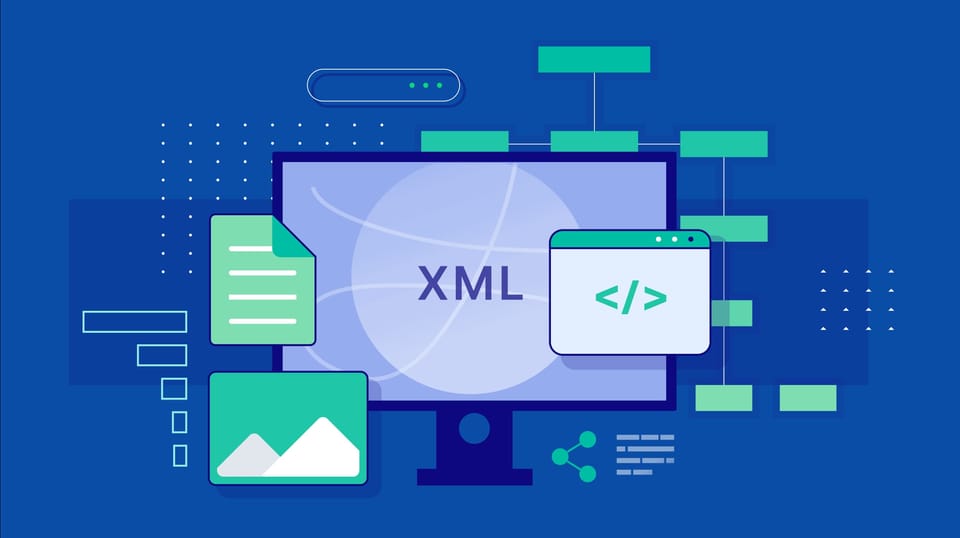Best WordPress Contact Form Plugins in 2025 (My Honest Picks)

Though I have been using the Ghost CMS, I still recall creating my first Wordpress site many years ago and thinking, "Alright, now how do people actually get a hold of me without me having to post my email address all over the place?" That's when I learned the magic of contact form plugins.
Skip ahead to 2025, and things are quite different. Modern-day contact form plugins don't do much more than receive messages — they are now full-fledged lead generation, survey, file upload, conditional logic, and even payment-gathering machines.
Here's the catch: there are too many WordPress form plugins available. And when every plugin promises to be "the best," it's simple to be overwhelmed.
So, in this article, I'll explain things in simple terms. We'll examine the requirements for selecting a suitable plugin, plunge into the best plugins of 2025 (as well as my own experiences using them), compare their features head to head, and then, I'll provide my suggestions based on various use cases.
At the end, you'll have a clear idea of which contact form plugin is most suitable for your WordPress website.
Criteria for Choosing the Best WordPress Contact Form Plugins
Before we dive into the list, let's establish some ground rules. What really makes a contact form plugin worth using? Over time, I've found that the best ones tend to tick these boxes:
- Ease of Use – Can I install it without having to read a 50-page manual?
- Design Flexibility – Does it look sleek, and can I get it to fit my website's style?
- Features – More than name, email, and message… does it support file uploads, conditional logic, or integrations with email marketing services?
- Performance – Does it speed up, or bog down my site (which Google absolutely dislikes)?
- Spam Protection – Because nobody wants 200 "Buy Bitcoin Now" emails per day.
- Pricing – Is it budget-friendly, particularly for solopreneurs or small business owners?
That being said, let's examine the best WordPress contact form plugins in 2025, listed from okay to bestest.
Best WordPress Contact Form Plugins in 2025
Here are my top choices, beginning with a few niche-friendly ones and progressing to the game giants.
8. JetFormBuilder (for Gutenberg users)

If you're the kind of person who has fallen in love with Gutenberg's block editor, JetFormBuilder is your best friend.
When I used it, the first thing I adored was how seamless it felt to use within WordPress. No gaudy external builder, no hulking UI—it's just another block. Need to insert a form? Add it like you would an image or paragraph.
Best For: Everyday Gutenberg users.
Pros:
- Free base plugin.
- Great for dynamic websites (such as booking systems).
- Makes seamless integration with JetEngine.
Cons:
- Very steep learning curve for complete beginners.
- Not as refined as some of the paid tools.
It's like the "techie's form plugin." If you're a Gutenberg fan, give this a look.
7. HappyForms

Next up is HappyForms, what I'd affectionately call the "no-stress" plugin. It's natively integrated into the WordPress Customizer, so you build forms just like you're adjusting your site's colors and fonts.
My friend who owns a small bakery uses HappyForms to take cake orders. She said to me, "I didn't have to learn a single tutorial, Kamran—it just worked." That's a score in my book.
Best For: Newbies who want something extremely easy.
Pros:
- Easy-to-use drag-and-drop form builder.
- Spam protection built-in.
- Extremely lightweight.
Cons:
- Few advanced features in the free plan.
- Not for complex business requirements.
If all you need is a plain simple contact form and not overthink it, HappyForms is a good option.
6. Fluent Forms

Now we’re getting serious. Fluent Forms has been picking up speed quickly, and I know why. It's like that underdog plugin that humbly built itself into a beast.
When I first utilized it, I was amazed at how light it was in comparison to the "giants" but still delivered punch for punch in terms of features. You have your conditional logic, multi-step forms, and even CRM integrations like with HubSpot.
Best For: Business owners who require advanced features without bloat.
Pros:
- Incredibly fast and light.
- Slim drag-and-drop builder.
- Cheap pricing.
Cons:
- Slightly smaller ecosystem than giants WPForms.
- Some integrations need paid plans.
5. Formidable Forms

If you're a data geek (like me at times), you'll adore Formidable Forms. This isn't a contact form plugin—this is like Excel on steroids for WordPress.
I had a client years ago who had an online coaching business. They created sophisticated applications using Formidable, calculated scores automatically, and showed results to customers. That's when it hit me: this is not just "contact us," this is about building interactive experiences.
Best For: Developers, data-heavy projects, advanced websites.
Pros:
- Advanced features like calculations and directories.
- Can display form data on the front-end.
- Integrates with WooCommerce.
Cons:
- Not the friendliest for beginners.
- Premium pricing can get steep.
If you’re building something unique (like calculators, quizzes, or applications), Formidable is worth every penny.
4. Ninja Forms

Ah, Ninja Forms. This guy's been around since the dawn of time, and for good reason. It's expandable, newbie-friendly, and has loads of add-ons.
When I first set up Ninja Forms years ago, I was a huge fan of how I could get started for free but scale as my requirements expand. Need integration with PayPal? Add an add-on. Want conditional logic? Another add-on. It's like constructing a Lego build for forms.
Best For: Anyone who wishes for flexibility without locking into one pricing plan.
Pros:
- Drag-and-drop builder friendly for beginners.
- Lots of add-ons and integrations.
- Good free version.
Cons:
- Add-ons can be pricey.
- Not the quickest plugin relative to newer players.
3. Contact Form 7 (with add-ons)

Now, let's discuss the legend: Contact Form 7. It's the original WordPress form. Pretty much every single person has used it at some time or another because, let's face it, it's free.
Here's the thing: by itself, it's somewhat. lacking. But add in the proper add-ons (such as Flamingo to store submissions or Smart Grid to style it), and it's a monster.
I recall my very first WordPress website utilized Contact Form 7. I knew nothing about "shortcodes," but the good news is that some how I managed to make it work. It's easy, tried-and-true, and still does the trick.
Best For: Those looking for a free, no-nonsense solution.
Pros:
- 100% free.
- Lightweight.
- Massive community support.
Cons:
- Loses a drag-and-drop builder.
- Requires add-ons for advanced features.
If you're bootstrapping and do not mind experimenting, CF7 can still work for you.
2. Gravity Forms

When you ask experts about form plugins, Gravity Forms invariably comes up. Why? Because it's reliable and feature-packed.
I worked with a digital agency that employed Gravity Forms for all their forms: lead generation, event registrations, surveys—you name it. And it performed beautifully.
Best For: Agencies, enterprises, and professional websites.
Pros:
- A lot of advanced features (conditional logic, multi-page forms).
- Massive ecosystem of add-ons.
- rock-solid performance.
Cons:
- No free version.
- Somewhat dated UI versus Fluent Forms or WPForms.
1. WPForms (My #1 Pick)

And here we are — my personal favorite.
Why WPForms Wins:
- Beginner-friendly drag-and-drop builder.
- More than 1,500 templates — seriously, you can create anything.
- Excellent balance between simplicity and power.
- Active support and frequent updates.
Weaknesses:
- Free version is limited.
- Some advanced features (such as surveys) cost higher-tier plans.
I use WPForms on my client sites because it just works. Whether I'm creating a quick contact form or a payment-enabled form, it's a breeze.
Feature Comparison Table
| Plugin | Ease of Use | Free Version | Advanced Features | Best For | Price Range |
|---|---|---|---|---|---|
| JetFormBuilder | Medium | ✅ | ✅ | Gutenberg lovers | Free – $39 |
| HappyForms | Easy | ✅ | Limited | Beginners | Free – $69 |
| Fluent Forms | Easy | ✅ | ✅ | Modern businesses | Free – $79 |
| Formidable Forms | Medium | ❌ | ✅✅ | Advanced users/developers | $79 – $599 |
| Ninja Forms | Easy | ✅ | With add-ons | Flexible users | Free – $$ |
| Contact Form 7 | Basic | ✅ | With add-ons | Beginners on a budget | Free |
| Gravity Forms | Medium | ❌ | ✅✅ | Agencies/pro websites | $59 – $259 |
| WPForms | Very Easy | ✅ | ✅✅ | Most users | Free – $399 |
Recommendations Based on Use Cases
- Just beginning / blogging for fun? → Try HappyForms or Contact Form 7.
- Having a small business? → WPForms or Fluent Forms.
- Need advanced features (calculators, applications)? → Formidable Forms.
- Working at an agency? → Gravity Forms for stability and reliability.
- Love Gutenberg? → JetFormBuilder all the way.
Conclusion & Next Steps
When I think back about my initial broken contact form test, I just can't help but smile. Now, creating a stunning, working form takes seconds to set up with a drag-and-drop block interface — no coding needed.
If I had to make a one-sentence recommendation: Begin with WPForms if you need something simple and solid but switch to Fluent Forms or Gravity Forms if your site requires extra oomph.
👉 What's next? Install the free version of one plugin, create a simple form, and see how much simpler reaching your audience is. Because at the end of the day, a site without a means to converse with you is like a store with closed doors.
➤ Disclosure: Our content is reader-supported. If you click on certain links, we may make a commission. [Learn More]




